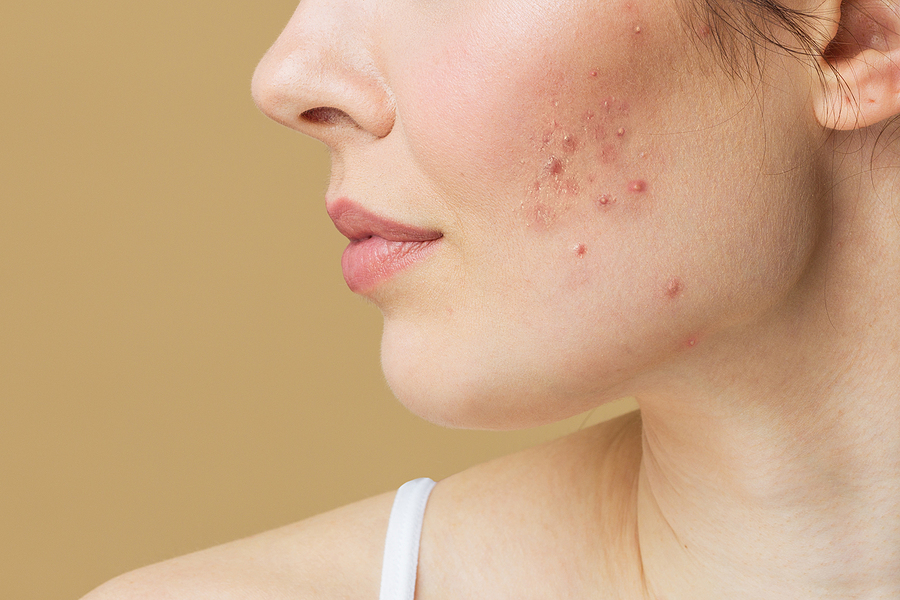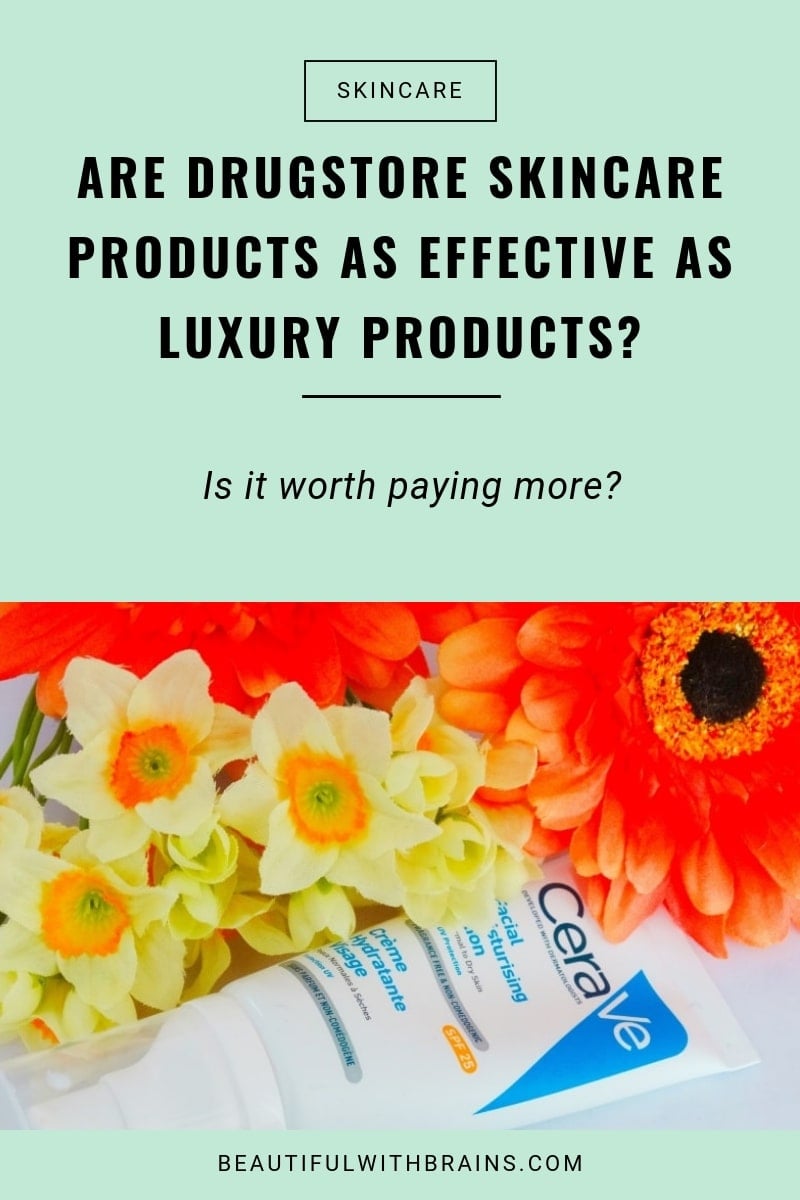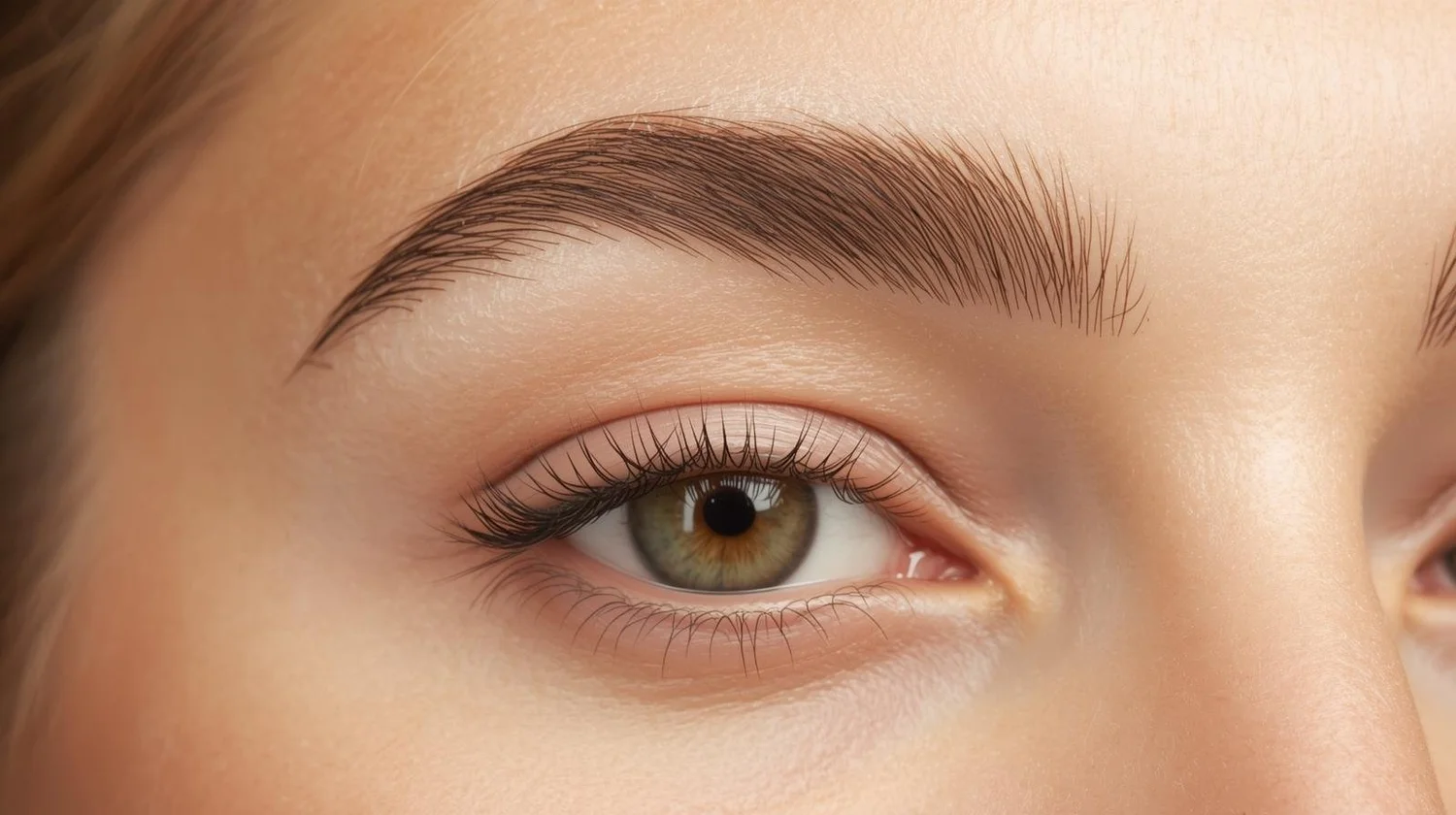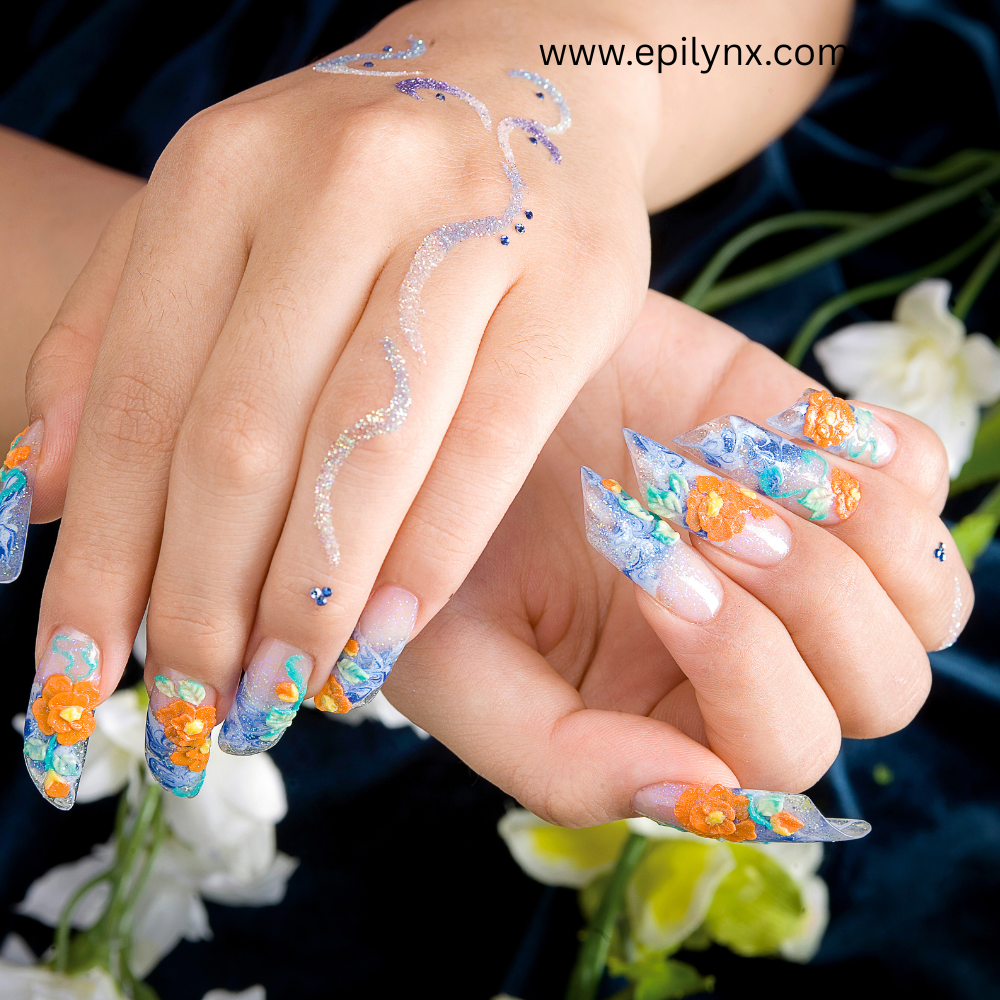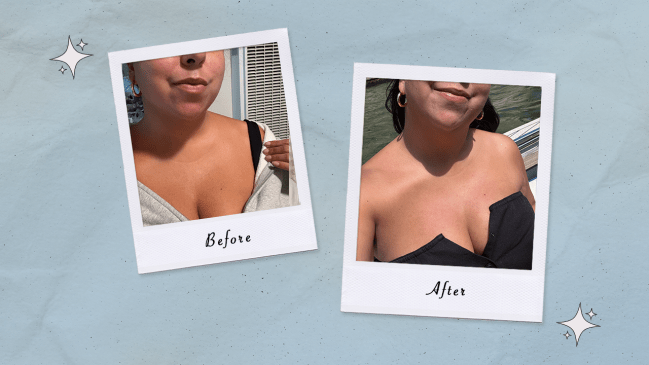You’re an adult now. You’ve outgrown all the teen drama. So, why on earth are you still getting the same annoying acne breakouts? Or, perhaps you sailed through adolescence with clear skin, and now that you’re an adult, suddenly you’ve got acne. Why? Adult acne is especially frustrating and disruptive because, as common as it is (about 31.9% of women and 20.5% of men aged 20 to 70 have it), it’s hard to properly treat adult acne with the ubiquitous, teen-focused acne advice.
“Many adults are genuinely surprised or embarrassed, especially if they didn’t have much acne as teenagers,” says Heysek. Adult acne is a complex skin condition that can have a number of different causes that may feel out of your control.
“Acne in adults is often influenced by lifestyle, environment, and biology,” she says. “The most common reasons include hormonal fluctuations, chronic stress, cosmetics, medications, underlying conditions, genetics, and environmental factors.” So, just applying an over-the-counter acne medication designed for teenagers to such a complicated condition as adult acne often leads to disappointing results. It’s important to understand the causes first, and then work with your dermatologist to get a targeted professional and/or prescription acne medication for adults that addresses your causes more directly.
The biggest factors for acne in adults include:
Studies have found a strong correlation between hormonal shifts and adult acne lesion development, particularly in women, who have a higher incidence of acne in adulthood than men. Women often notice a spike in breakouts during certain phases of their menstrual cycle. Furthermore, women with polycystic ovarian syndrome (PCOS) also have a higher incidence of difficult breakouts and other skin problems, again because of hormonal fluctuations. Even women going through perimenopause and menopause can experience acne all over again as they go through middle age. So, although acne is famously a teenage issue, it can really happen almost anytime in life.
Chronic stress can trigger another hormonal imbalance that aggravates adult acne breakouts: cortisol. Cortisol hormone levels rise when we experience stressful situations. And in today’s world, stressful situations can continue for days, weeks, or even longer, leading to excessive amounts of cortisol in the body. Cortisol causes excess sebaceous gland activity in the skin, which increases the amount of oil clogging the pores. Stress can also lead to lifestyle struggles like poor diet and lack of sleep, both of which can aggravate stress and inflammation.
The type of skincare products you use can either cause or relieve acne problems. For example, while it is absolutely critical to wear moisturizer, even on oily, acne-prone skin, some moisturizers have ingredients that can clog pores and worsen breakouts. Look for moisturizers that are labeled “noncomedogenic”, which means the ingredients don’t clog your pores.
Heysek also says that product buildup from summer sunscreen application can become problematic, even though it is absolutely essential to wear a daily SPF for sun protection. Since it’s important to reapply sunscreen every two hours when spending time out in the sun, the product can build up and clog pores over time. Your dermatologist can help you find a sunscreen that is less likely to cause these problems and recommend a daily cleansing regimen that removes sunscreen buildup.
Lifestyle factors are ones that people can exert some control over but are not always the only thing that needs to change to alleviate an adult acne issue. “Some of the most common misconceptions and mistakes I see include over-exfoliation, switching products too often, using products that are too harsh, spot treating instead of preventative treatment, ignoring underlying causes, not moisturizing, and picking at the skin,” says Heysek. These practices can be problematic for the following reasons:
Although a stressful adult schedule can make it hard to have total control over every one of these lifestyle factors, it makes sense to try improvements in these areas for overall good health, which can then improve your skin’s health.
These two factors are what they are and are often out of our control. However, understanding their impact on each patient can help us find the best acne treatment for adults whose acne stems from these two factors.
For example, every year, environmental factors, like the changing seasons, can trigger acne breakouts and other skin problems. As summer wanes and fall begins, the air gets drier. This can disrupt the skin’s protective barrier, leading the skin to overproduce oil. Making seasonal adjustments to your skincare routine can help here.
On the other hand, genetic factors are a little trickier. Recent studies in adult female twins have shown that there is a very strong correlation between adult acne and genetic factors. Understanding your family history concerning adult acne and other skin problems can help us determine the most successful path forward in acne medication and other adult acne treatment avenues to clear up your skin.
Adult acne also exhibits different characteristics from teenage acne, including:
Scientists have established a clinically significant connection between adult acne and mental health struggles like depression and anxiety. For adults struggling with acne, there is a nagging feeling that “I should be past this by now!” And even though adult acne is a common, very complex skin condition that rarely has to do with hygiene, the emotional stress surrounding the stigma of acne in social settings can feel crippling and isolating. The social stigma affects everything from dating to professional settings. Those feelings are real and valid, but the good news is that you are not alone, and we can help you with adult acne treatment that works, whether it’s acne scar removal or prescription acne medication for adults that will finally work to clear away the breakouts.
First and foremost: “If consistent use of over-the-counter products hasn’t led to noticeable improvement, it’s time for a professional evaluation,” urges Heysek. Also, stop doing any of these things, if possible:
If you’ve tried every over-the-counter drugstore treatment you can find but continue to have breakouts—especially painful or cystic breakouts that lead to scarring, dark marks, or skin texture changes, frustration, anxiety, and depression—don’t wait any longer. Get professional help and healing. Schedule an appointment to discuss your adult acne situation with your dermatologist. Autumn is a smart time to have a skin health expert help you reset your skincare routine and help you find the best adult acne treatment for your life.
“If patients have not responded well to over-the-counter products, there are many efficacious prescription-strength acne medication options I would try next,” says Heysek. “Examples of effective options include retinoids, topical antibiotics, azelaic acid, oral medications, and in-office procedures.”
Heysek explains how these adult acne treatment options work to clear and improve skin health for adults with acne:
For most adults with acne, a dermatologist-guided combination of acne therapies provides the best results, along with better self-care and lifestyle adaptations that reduce stress and inflammation. Avoid risky guesswork at the drugstore with products that might not help or even make things worse—instead, work with your dermatologist, who can help you access adult acne treatment and therapies that provide faster, better results.
You are not alone—so many adults are struggling with stubborn acne right now. Fortunately, real, effective, skin-clearing, skin-healing solutions are here for you at Apex Skin.
Board-certified dermatology Physician Assistant Olivia Heysek, who sees patients in our Avon and Solon, Ohio offices, often works with adults facing acne and knows how frustrating it can be. She—and the rest of our experienced Apex Skin providers across Northeast Ohio—are here to help you find the right treatment plan for your skin.
Don’t wait—schedule your consultation today and take the first step toward confidence and clear skin!





